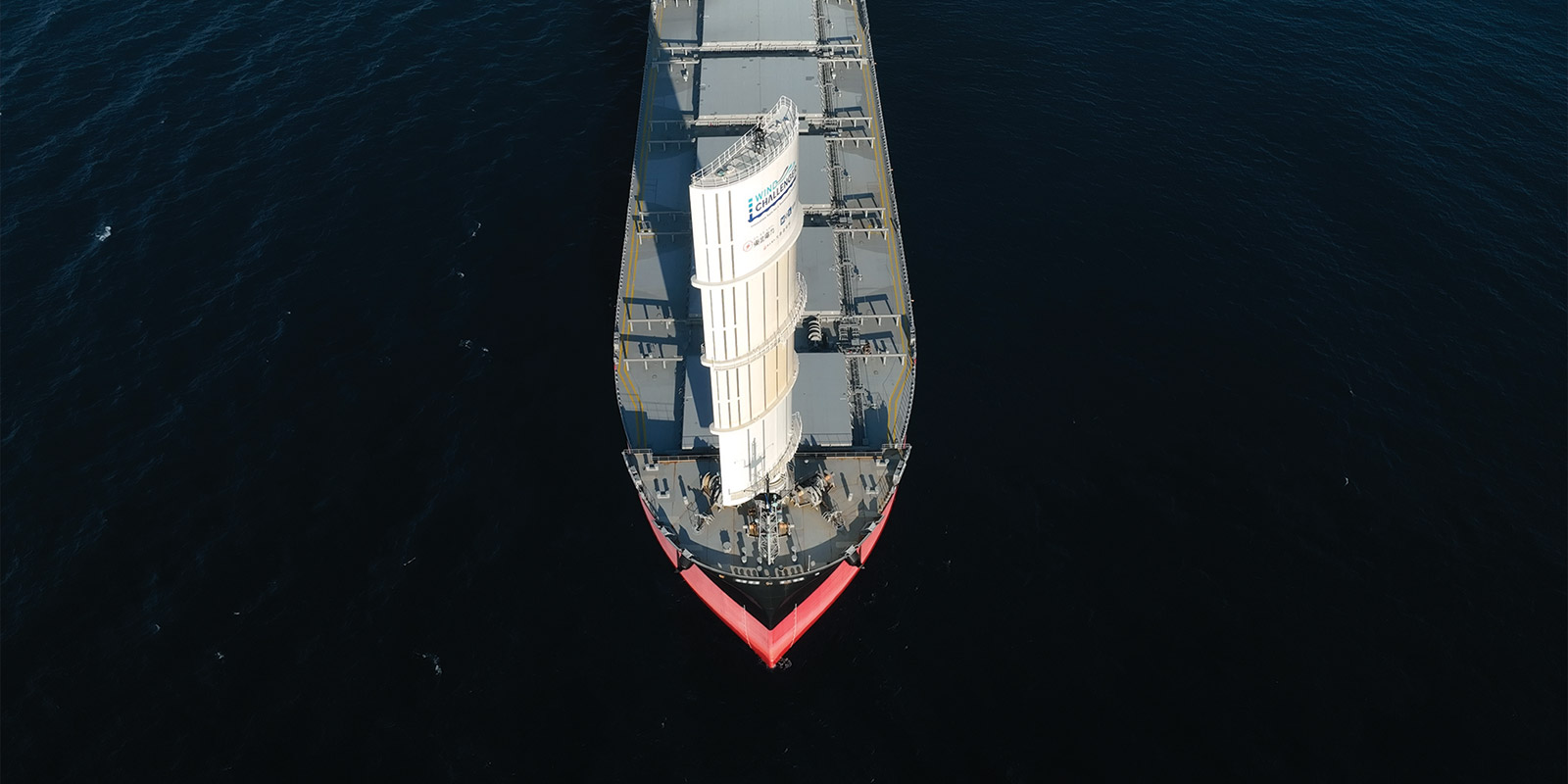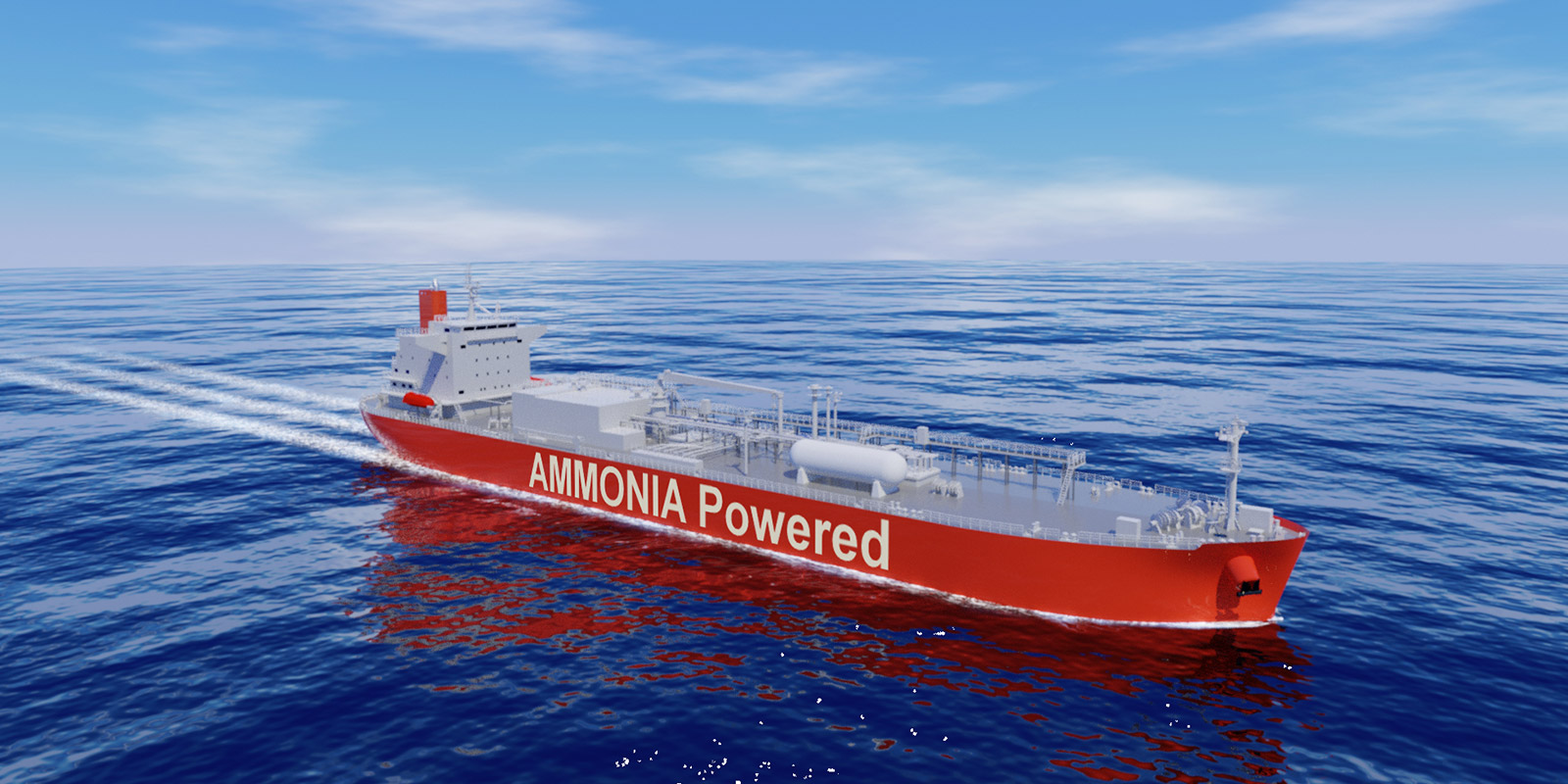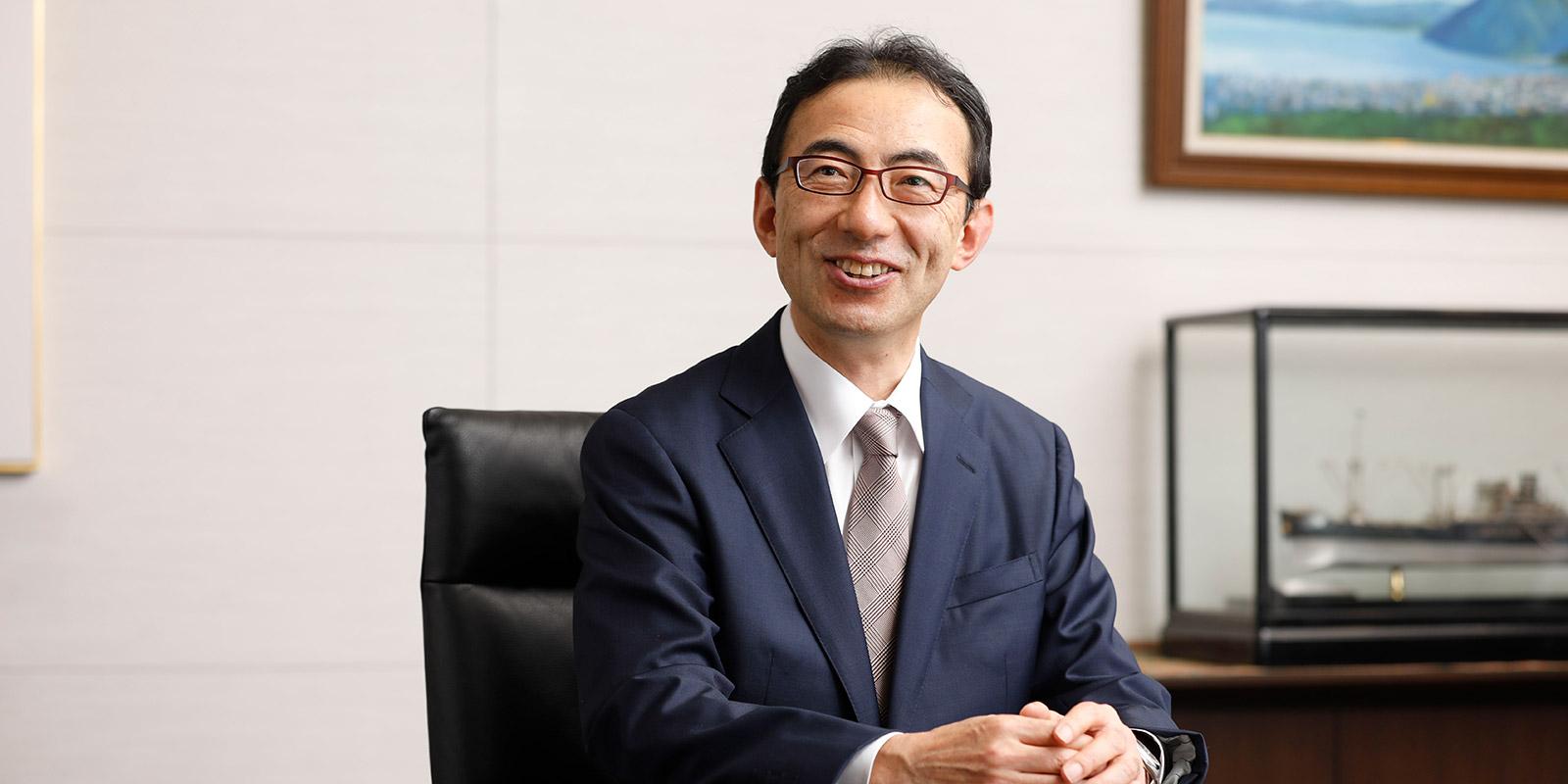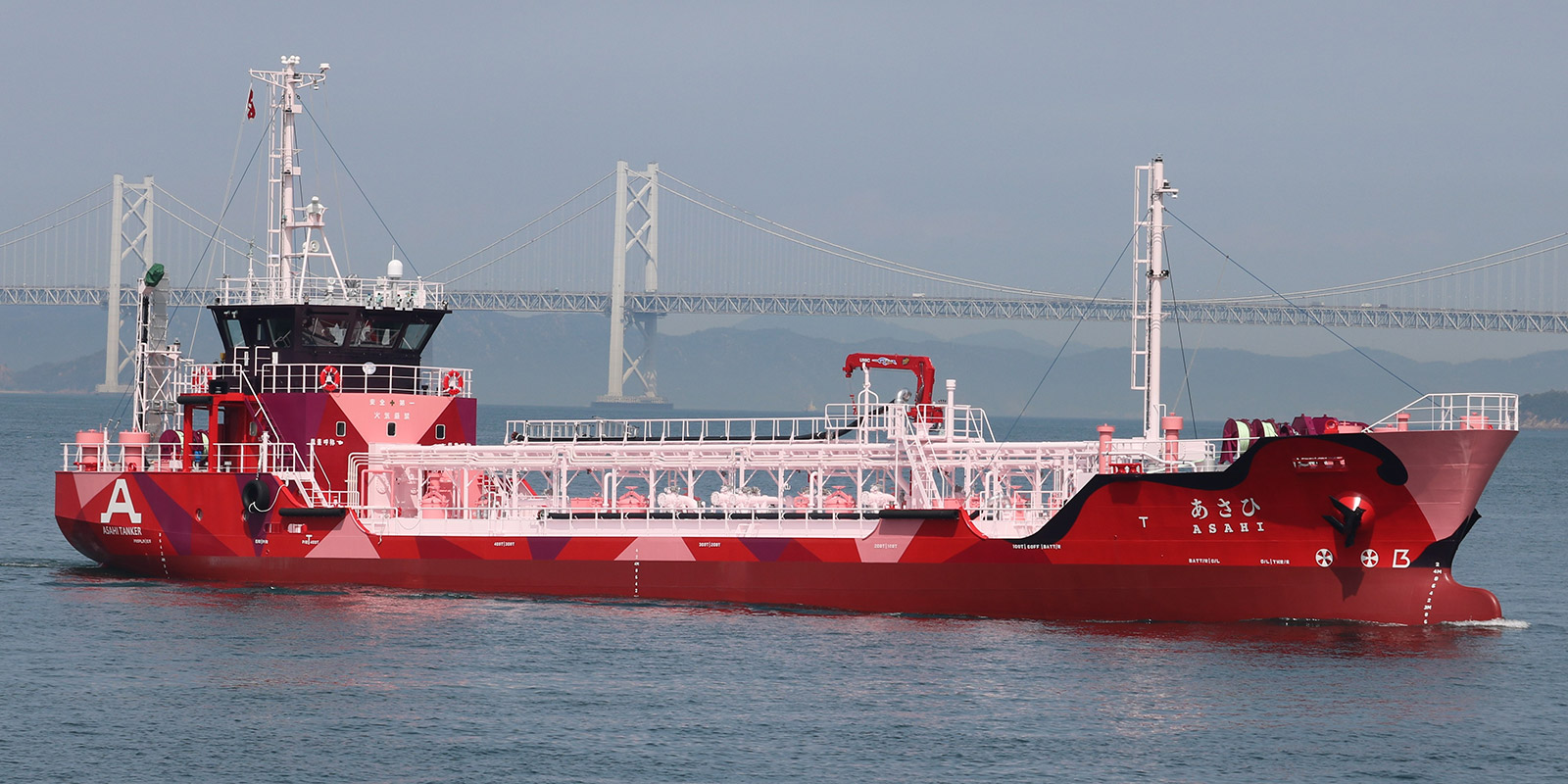Sea change
Shipping company Mitsui O.S.K. Lines is aiming to achieve net-zero by 2050. Its vice-president Toshiaki Tanaka tells Kiminori Hiromachi how it plans to reach its ambitious goal
What’s the Mitsui O.S.K. Lines Group’s vision for decarbonization?
“We announced our environmental policy more than 20 years ago and have been working to preserve the marine and global environment ever since. Addressing climate change is a pressing issue that can’t be avoided. In 2021, we took another step forward by formulating the MOL Group Environmental Vision 2.1, a more concrete roadmap which seeks to achieve net-zero emissions for the entire group by 2050. To achieve this we will reduce greenhouse gas (GHG) emissions intensity from transportation by 45 percent by 2035. We will also begin operating net-zero-emissions vessels during the 2020s. These vessels are expected to be large commercial ships fueled by ammonia, and the first should be in operation by around 2027.”
What is your strategy for achieving net-zero emissions by 2050?
“We have established five strategies to achieve our goals. First, we will switch to cleaner fuels that emit less GHGs. Second, we will introduce more energy-saving technologies. Third, we will increase the efficiency of our operations. Fourth, we will take an active role in participating in international rule-making and initiatives, and engage in diverse collaborative efforts to build a business model that enables net-zero emissions. Finally, we will expand our low-carbon and decarbonization businesses, such as those related to offshore wind power generation.”
 The Shofu Maru is the first vessel to be equipped with the emission-reducing Wind Challenger system | © Mitsui O.S.K. Lines
The Shofu Maru is the first vessel to be equipped with the emission-reducing Wind Challenger system | © Mitsui O.S.K. Lines
“We have started looking at clean fuels such as ammonia and hydrogen as alternatives to conventional heavy oil”
What initiatives are you focusing on right now?
“We have started looking at clean fuels such as ammonia and hydrogen as alternatives to conventional heavy oil. We are working with shipbuilders, engine manufacturers, and engineering companies to build new vessels that run on these fuels. However, we can’t switch to clean fuels such as ammonia all at once, because we don’t yet have a supply system in place. As a transitional measure, we are starting with the conversion of heavy oil to liquefied natural gas, which is readily available and proven safe.”
How does the Wind Challenger work?
“It is a state-of-the-art sail system that uses wind power to assist propulsion. The height and angle of the sails are automatically controlled by computer to maximize the efficient use of wind power. Until now, large merchant ships have relied almost entirely on heavy oil for propulsion, but the addition of wind power makes it possible to reduce the amount of fuel used without altering operating speed.”
 Artist’s rendering of an ammonia-powered Mitsui O.S.K. Lines vessel | © Mitsui O.S.K. Lines
Artist’s rendering of an ammonia-powered Mitsui O.S.K. Lines vessel | © Mitsui O.S.K. Lines
“Asahi is the world’s first EV tanker with fully electric propulsion”
Wasn’t the world’s first electric tanker also launched this year?
“Yes, our EV tanker Asahi was completed in April 2022. It’s the world’s first EV tanker with fully electric propulsion. The Asahi is currently in service in Tokyo Bay as a fuel-supply vessel. Its lithium ion batteries can be recharged in six to ten hours and when fully charged, the ship can travel approximately 200 kilometers. The batteries are charged with electricity certified to come from non-fossil fuel sources.”
 Toshiaki Tanaka | Sadato Ishizuka
Toshiaki Tanaka | Sadato Ishizuka
“The shipping industry is currently emitting enormous amounts of greenhouse gases. It’s our mission to change this situation”
What is the significance of working on decarbonization as a shipping company?
“The shipping industry is currently emitting enormous amounts of GHGs. It’s our mission to change this situation. If we don’t, we won’t be able to contribute to society or increase our value as a corporation. Our commitment to decarbonization is the embodiment of our corporate philosophy and is imperative for our sustainable growth as a company.”
 Asahi, the first EV tanker with fully electric propulsion | © Mitsui O.S.K. Lines
Asahi, the first EV tanker with fully electric propulsion | © Mitsui O.S.K. Lines